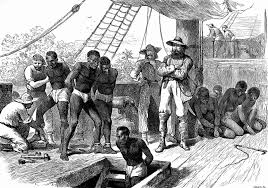The American Project of 1619
Slavery: The wounds may heal, but the scar remain
By Abraham Ariyo, M.D
Four hundred years ago last month, slavery started in earnest in what is now the United States of America. Precisely, on July 30th, 1619, the first legislative Assembly in the new American colonies met and enacted new laws that banned idleness, drunkenness and gambling.
This Assembly was headed by George Yeardley, who arrived three months earlier from England as the newly appointed Governor of Virginia. This governor and 22 white men with land and property (the Burgesses) met at a church in Jamestown, Virginia. They formed an instrument of government, enacted some laws, and made Sabbath observance mandatory. At that meeting, they also approved slavery on the new American soil. Following that meeting, large commercial ships were commissioned and slavery started in earnest in America.
The last week of August, 1619, saw the arrival of the first African slaves onto the American shores. A private ship called “White Lion” brought in the first 22 Africans. They arrived at Cape Comfort, now called Fort Monroe, in Hampton, Virginia. Apparently, the “White Lion” intercepted, overpowered and captured a Portuguese slave ship in the middle of the ocean. This ship was forcefully taken over by the Americans and redirected to the new American colonies, becoming the first arrival. Historic data showed that these enslaved people originated from Angola. On the list were names like Antony and Isabel who served Captain William Tucker’s family in Virginia. In 1623, this couple produced the first American born African in the new world and the boy was named William. The second ship, ‘Treasurer’, arrived shortly after with more African slaves and then there were more. These newly arrived African slaves were sold to Governor Yeardley and the Cape Comfort merchants who subsequently distributed then to all the colonies.
Slavery became a very lucrative American enterprise, resulting in a booming business for slave traders and merchants, ship-makers, voyagers, bankers (financiers), and the insurance companies that insured these transatlantic voyages. This enterprise created such a financial fortune in the land, that it became almost impossible to give it up. This lucrative windfall continued through 1776, when the American founding fathers, forcefully declared independence from Britain to escape British taxation. Slavery continued in the land of the free, United States of America, until 1865. The Whites passed this wealth unto their generational children. This may help explain, at least in part, the wealth gap among Whites and Blacks till today, with the average household worth of $171,000 and $17,000.00, respectively.
Importantly, this week marked 400 hundred years of Africans in the new world. A commemorative meeting of the First Legislative Assembly was held on July 30th, 2019, (last month in Jamestown, VA). It was a chaotic event under a chaotic U.S. President. A large number of the Virginia Legislative Assembly delegates at the event walked out in protest of the event and Trump’s speech. On the other hand, the people of the City of Hampton, VA, that received the first set of African slaves, are embracing their place in history, by reflecting on their past, their present, and their future. This week, they are organizing a week-long event to remember the lives of these Africans who were forcibly brought in shackles against their will and had to endure a horrendous journey to arrive in the new world. On arrival, their struggle continued. They had no job descriptions, but we know from historic files, that they worked Monday through Saturday from the dawn to dusk, building this new nation without pay. While they lived unceremoniously, the new world (USA) is a better place now because of them and we are greatly indebted to them. They were the true pioneers and their descendants (Black Americans) remain the soul and light of the American spirit, freedom and democracy till today.
Please go and celebrate this week with the good people of Hampton, Virginia, USA.
Abraham A. Ariyo, M.D.
HeartMasters, Dallas, Texas
This piece was first published on August 30, 2019

